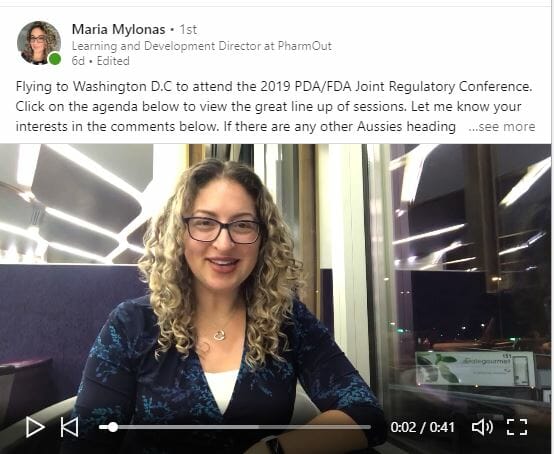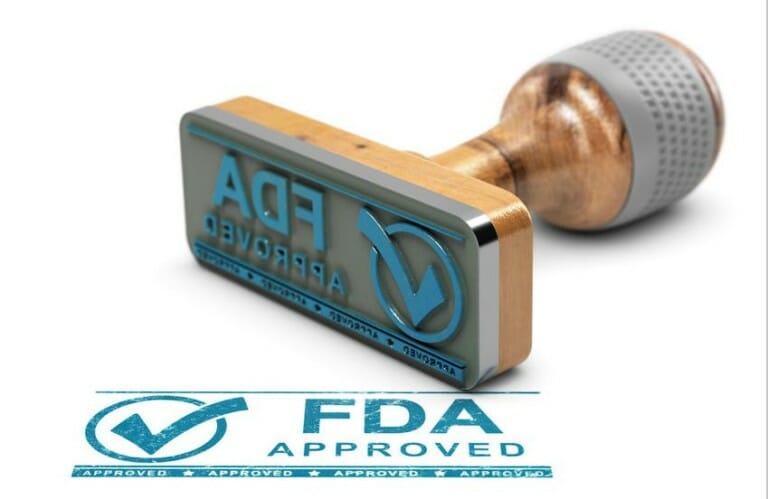FDA Warning Letters for cGMP compliance issues relating to CAPAs
If you’re a Pharmaceutical business owner or Quality Manager, you know this all too well — that your deviation management records & CAPA system will be scrutinised during your next GMP compliance audit.
- Auditors and FDA Inspectors are all but guaranteed to delve deeply into these critical components of your quality system.
- Even during remote audits/offsite inspections of compliance with cGMP and/or FDA CFRs:
- Deviation records, root cause investigations, and CAPAs will remain key targets for inspections.
- Actions you take to ensure the effectiveness of these procedures/systems will be examined very closely.
- Actions you FAIL to take are likely to lead to findings, citations, and warning letters.
CAPAs and CFR regulations: Auditor expectations

Even if a Regulatory Inspector only briefly scans your CAPA records (an unlikely scenario), they are likely to discover inadequacies significant enough to lead to an FDA warning letter, citation, or worse.
- The reason is that management of deviations, including root cause investigations and CAPAs where deemed necessary, are crucial parts of your overall PQS (Pharmaceutical Quality System) or QMS (Quality Management System).
- These systems & components must function effectively to ensure your medicinal products meet established specifications, such as identity, strength, quality, and purity (or for medical devices, fit-for-purpose functionality, reliability, and other standards).
Inadequately handled quality issues — such as deviations — present unacceptable risks.
- Even a seemingly ‘minor deviation’ could prove harmful to patients.
- All investigations must be investigated and resolved appropriately.
Despite recognising that deviation management procedures/CAPA systems are ‘audit target areas’ during GMP inspections, many organisations fail to devote adequate resources (including personnel training) to ensure these systems meet PIC/S cGMP requirements and FDA CFRs.
Breaches of cGMP (current Good Manufacturing Practice) in relation to managing deviations are, unfortunately, still too common in the pharmaceutical sector.

Warning letters, patient safety, and business risks
FDA warning letters are a sign that the patients and medical professionals relying on your products — along with your professional reputation, brand name, and organisational sustainability — are all at risk.
It’s a risk you can avoid with proper resource planning, timely CAPAs, and quality reviews.
FDA Warning Letters in relation to CAPA inadequacies generally arise from a variety of factors.
And many of these factors can be remedied, pre-audit, by applying appropriate resources and GMP compliance knowledge.
Examples of contributing factors to FDA audit findings include, but are not limited to:
- Inadequate deviation management strategies
- Outdated SOPs
- Insufficient employee training programs
- A ‘punishment-driven culture’ that results in a lack of identifying and reporting deviations or non-conformances
- Inadequate documentation and lack of justification for corrective measures
- Recordkeeping and data integrity issues
- Faulty equipment or validation schedule gaps
- Lack of appropriate risk assessments for corrective actions
- Lack of thorough investigations of impacted batches
- Inadequate follow-up (effectiveness reviews of corrective actions)
- Failure to justify, document, approve, and/or review CAPA plans
- Other oversights when managing a deviation or implementing CAPAs
FDA warning letters for CAPA failures are not only embarrassing — given they’re published online for all the world to see. They’re an indication your products pose an unacceptable risk.
Encouragingly, FDA Warning letters can be readily prevented with the right approach and ‘quality culture’ initiatives.
Key factors for successful deviation management/CAPA systems include:
- Proper allocations of resources/personnel for:
- Quality management systems (maintenance/updates)
- Root cause investigations/CAPAs
- Updates to SOPs, revalidation when required
- Effectiveness reviews
- Good communication across the entire organisation
- Adequate and ongoing cGMP compliance training programs
- Including training in the identification/reporting, documentation and management of deviations, non-conformances, and other quality events
- An effective CAPA system including CAPA planning scheduling/quality controls
- In-depth root cause investigations for significant quality events or repeated deviations
- Root cause analysis (RCA) using available tools
- Documented justification for corrections/CAPAs
- Product Quality Reviews (PQRs)
- Creation and sustaining of an overall ‘Quality Culture’
- Ensuring timely corrective and preventive actions

CAPA audit findings & FDA warning letters
Why are warning letters (and cGMP compliance breaches) still too common in relation to deviation management and CAPA systems?
And what should your personnel aim to correct long before your next regulatory audit* in relation to deviation management, root cause investigations, and CAPAs?
*FDA audit, TGA audit, MHRA audit, EU/EMA audit, etc.
There are several reasons organisations may fail to meet cGMP regulations for managing deviations, non-conformances, and other quality events — including CAPAs.
We’ll cover some of the reasons for common CAPA/cGMP compliance breaches, below.
But you’re encouraged, after reading this article, to complete the online cGMP training course by PharmOut Pty Ltd covering the management of Deviations and Non-Conformances in a GMP environment for a more thorough explanation of what regulator’s expect when performing an audit of your deviation logs and CAPA records.
Remember, deviation management procedures (and CAPA systems) are crucial components of quality risk management/quality assurance.
CAPAs are often necessary to meet product safety, quality and efficacy standards and other regulatory requirements.
Failure to meet expected standards and cGMP regulations can have a major impact across every domain of your business (as well as your personal life, in terms of your personal liability as a business owner or quality professional).
Ineffective CAPA systems — which can lead to recalls:
- Are dangerous and costly.
- Place products, patients, personnel, and organisational sustainability at risk.
Fortunately, investing in your PQS/CAPA systems will generally yield positive benefits across a variety of business metrics –patient safety, business/product reputation, and organisational survival (sustainability).

FDA warning letters for cGMP compliance breaches
As you’re well aware, there are numerous downsides to ending up with publicly-available FDA Warning Letters in relation to compliance breaches of CFRs 210 & 211 and CFRs 800 & 820.
Warning letters provide painful details of your company’s failure to comply with FDA CFRs and cGMP regulations. They reveal your quality system deficiencies to current and future clients, competitors, and other regulatory agencies around the world. These letters:
- Are published on the FDA’s ‘warning letter’ pages
- Are not a good outcome for your brand or business
- Are a confidence-destroyer for consumers, patients, and medical teams (medicine prescribers)
- Are a sign you may end up releasing substandard or harmful products, leading to expensive recalls, batch material wastage, and possibly criminal charges for cases of gross negligence (for serious and repeated breaches of cGMP and product safety requirements)

Establishing an effective CAPA system is a mandatory component of your PQS/QMS.
The benefits of devoting time and resources* to ensuring these systems are effective can save you from:
- Releasing adulterated products and harmful product batches
- Distributing contaminated batches of medicines to wholesalers and suppliers
- Recalls and expensive product wastage
- Supply chain issues
- Contract breaches
- Lawsuits and jail terms
Resources must include adequate cGMP training programs and personnel rostering to ensure these systems are understood, utilised, and effective.
Common citations for CAPA inadequacies in FDA warning letters
So what are some of the commonly referenced cGMP breaches described in FDA warning letters?
While details can vary, the most common citations for breaches of deviation management and CAPA guidelines include:
- Inadequate recordkeeping of deviations and their management
- Inadequate details of corrective and preventive actions and their justifications
- Failure to thoroughly investigate significant and/or recurring deviations/quality events
- Repeated testing (‘test until passing’)
- Failure to properly investigate/assess other impacted products, equipment, processes, personnel, etc.
- Insufficient investigation scope
And what can you do to ensure you have effective deviation management procedures and CAPAs?
The first step to avoid audit findings/warning letters is to ensure your personnel understand how to recognise — and report — a deviation or non-conformance.
- Refresh personnel training on cGMP requirements with an online cGMP course on management of Deviations and Non-Conformances, and CAPA training (coming soon)
- Use these resources to train the entire team, in addition to your internal training programs (and virtual GMP education programs/GMP workshops).
The second step is to review your procedures and systems and ensure they meet current GMP regulations, PIC/S guidelines and FDA/CFRs (or other applicable regulations).
The third step is to ensure close monitoring of CAPA implementation, as well as Product Quality Reviews of all deviations and their corrective and preventive actions, including effectiveness reviews.
Inadequate documentation (and data integrity breaches) are also a common finding during regulatory audits. These gaps can be remedied with data integrity strategies and data governance measures.

Avoiding FDA warning letters in relation to cGMP breaches for deviations and CAPAs
In summary, the prevention of audit findings, citations, warning letters, and liabilities, takes a multi-faceted, whole-of-organisation approach. It relies on a ‘quality culture’ at all levels of the organisation, including data governance and data integrity.
- Be sure your personnel understand their cGMP compliance responsibilities.
- These include ALCOA+ recordkeeping requirements, Data Integrity, and more.
Additional resources:
- Read the top 10/best practice Pharmaceutical industry blogs on PharmOut’s website.
- Return to the online GMP training store for short Certificate GMP training courses (available 24/7).
- Read FDA Warning Letters – Data Integrity issues
- List of Regulatory Authorities (GMP Audits/PIC/s)
- Preparing for GMP compliance audits by TGA, FDA, or other regulators
Note: if you are wanting to purchase 4 or more courses, or want low-cost GMP training courses for your personnel, check out the online training bundle options.
** Ordering online GMP education courses from this site gives you near-instant access to the courses, via an email containing your login information. Check all email folders approximately 5 minutes after your order (search for the term ‘course’, the course title, and/or search for ‘@pharmout.net’.) For a custom quote when seeking to order training for large numbers of employees (50 employees or more), please send an email via the contact page. **
Thank you for visiting the online GMP training store and for reading this blog.
Last updated on February 22nd, 2022 at 09:41 am





